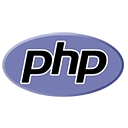Security is a top priority when developing web applications with PHP. Whether you're a beginner or an experienced developer, it's essential to follow best practices to protect your applications from common security vulnerabilities. In this guide, we'll explore PHP security best practices for beginners.
1. Keep PHP Updated
Regularly update your PHP installation to the latest stable version. Newer versions often include security fixes and improvements.
2. Use Prepared Statements
When interacting with databases, always use prepared statements or parameterized queries to prevent SQL injection attacks.
3. Validate User Input
Validate and sanitize user input to prevent malicious data from entering your application. Use functions like
filter_var()htmlspecialchars()4. Avoid Using Deprecated Functions
Stay away from deprecated PHP functions or features, as they may have security vulnerabilities. Check the PHP documentation for the latest recommendations.
5. Escape Output
Escape output data when displaying it in HTML, JavaScript, or other contexts to prevent cross-site scripting (XSS) attacks. Use functions like
htmlspecialchars()6. Secure File Uploads
If your application allows file uploads, restrict file types, use a unique naming convention, and store uploaded files outside the web root directory.
7. Implement Session Security
Protect user sessions by using secure session handling practices. Generate unique session IDs, set secure session cookies, and regenerate session IDs after login.
8. Use HTTPS
Secure your application with HTTPS to encrypt data in transit and prevent eavesdropping. Obtain an SSL/TLS certificate for your domain.
9. Implement Access Controls
Enforce proper access controls to restrict user access to resources. Users should only have access to the data and functionality they need.
10. Be Cautious with Third-Party Code
Review and validate third-party libraries or code you incorporate into your application. Ensure they are secure and up-to-date.
11. Regularly Back Up Data
Perform regular backups of your application data and server configurations to recover in case of security incidents or data loss.
12. Stay Informed
Keep yourself updated on the latest PHP security threats and best practices by following security blogs and PHP community updates.
Conclusion
PHP security is a critical aspect of web development. By following these best practices, even beginners can strengthen the security of their PHP applications and protect them from common vulnerabilities.

